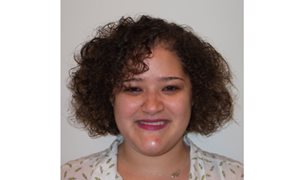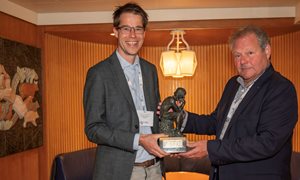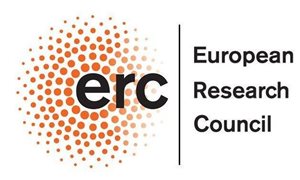29 October 2019
Using machine learning, they have built a tool that detects genetic mutations that trigger the immune system, helping identify which cancer patients are more likely to benefit from immunotherapy. The algorithm also reveals which people living with hereditary diseases may benefit from drugs that already exist
Mutations in our DNA can disrupt protein synthesis, sometimes causing truncated proteins which don’t work as intended. Known as nonsense mutations, these types of alterations can give rise to hereditary diseases and different types of cancer. To keep the number of truncated proteins to a minimum, human cells recognise and remove RNAs with nonsense mutations through a quality control process known as nonsense-mediated mRNA decay (NMD).
To better understand the effect of NMD on human disease, they built NMDetective, a tool describing every possible nonsense mutation that can occur in the human genome. Developed by large-scale statistical analyses based on machine learning, the algorithm identifies which mutations in the genome are susceptible to NMD.
They used NMDetective to analyse thousands of genetic variants that give rise to hereditary diseases in humans. “We were surprised to observe that, in many cases, NMD activity was predicted to lead to a greater severity of the disease,” says Fran Supek, ICREA researcher, head of the Genome Data Science laboratory at IRB Barcelona and leader of the team that built the tool.
The results of the study suggests that pharmacological NMD inhibition could slow the progression of many different genetic diseases. To distinguish which patients would benefit from this therapy, it is necessary to apply a precision medicine approach to determine the mutation responsible for the disease and the effect of NMD on this mutation, and this is precisely where NMDetective comes into play.
They also studied the role of NMD in cancer and the interaction between the tumour and the immune system. “We discovered that NMD activity is important for the prediction of successful outcome of immunotherapy in cancer,” explains Supek. They found NMD hides mutations that would otherwise trigger the immune system. Therefore, NMDetective can be used to analyse the mutations present in the tumour, in order to better distinguish between cancer patients that respond to immunotherapy from those who do not respond to immunotherapy.
“Tumours are riddled with genetic mutations that should make all sorts of weird proteins. The immune system should pick these up, identifying the cells gone wrong and destroying them,”, says Ben Lehner, researcher at the Centre for Genomic Regulation who also took party in the study. “But many of these weird proteins never actually get made because of NMD.”
“This algorithm can distinguish which mutations will and won’t trigger this error-checking system. What’s exciting is that drugs that block NMD already exist, which could be used in conjunction with other treatments to help the immune system better recognise tumour cells,” explains Lehner.
“Here we see an example where publicly available cancer genomics data can be ‘reused’ through machine learning approaches to better understand biological processes such as NMD,”, says lead author Rik Lindeboom. “What makes this study especially exciting, is that we could directly translate this fundamental research into insights that are relevant for clinicians and patients.”
This study has been funded by the HYPER-INSIGHT and IR-DC grants from the European Research Council, by the Dutch Oncode Institute, by the Ministry of Science, Innovation and Universities (previously MINECO), the Bettencourt Schueller Foundation and AGAUR.

Using machine learning, they have built a tool that detects genetic mutations that trigger the immune system, helping identify which cancer patients are more likely to benefit from immunotherapy. The algorithm also reveals which people living with hereditary diseases may benefit from drugs that already exist
Mutations in our DNA can disrupt protein synthesis, sometimes causing truncated proteins which don’t work as intended. Known as nonsense mutations, these types of alterations can give rise to hereditary diseases and different types of cancer. To keep the number of truncated proteins to a minimum, human cells recognise and remove RNAs with nonsense mutations through a quality control process known as nonsense-mediated mRNA decay (NMD).
To better understand the effect of NMD on human disease, they built NMDetective, a tool describing every possible nonsense mutation that can occur in the human genome. Developed by large-scale statistical analyses based on machine learning, the algorithm identifies which mutations in the genome are susceptible to NMD.
They used NMDetective to analyse thousands of genetic variants that give rise to hereditary diseases in humans. “We were surprised to observe that, in many cases, NMD activity was predicted to lead to a greater severity of the disease,” says Fran Supek, ICREA researcher, head of the Genome Data Science laboratory at IRB Barcelona and leader of the team that built the tool.
The results of the study suggests that pharmacological NMD inhibition could slow the progression of many different genetic diseases. To distinguish which patients would benefit from this therapy, it is necessary to apply a precision medicine approach to determine the mutation responsible for the disease and the effect of NMD on this mutation, and this is precisely where NMDetective comes into play.
They also studied the role of NMD in cancer and the interaction between the tumour and the immune system. “We discovered that NMD activity is important for the prediction of successful outcome of immunotherapy in cancer,” explains Supek. They found NMD hides mutations that would otherwise trigger the immune system. Therefore, NMDetective can be used to analyse the mutations present in the tumour, in order to better distinguish between cancer patients that respond to immunotherapy from those who do not respond to immunotherapy.
“Tumours are riddled with genetic mutations that should make all sorts of weird proteins. The immune system should pick these up, identifying the cells gone wrong and destroying them,”, says Ben Lehner, researcher at the Centre for Genomic Regulation who also took party in the study. “But many of these weird proteins never actually get made because of NMD.”
“This algorithm can distinguish which mutations will and won’t trigger this error-checking system. What’s exciting is that drugs that block NMD already exist, which could be used in conjunction with other treatments to help the immune system better recognise tumour cells,” explains Lehner.
“Here we see an example where publicly available cancer genomics data can be ‘reused’ through machine learning approaches to better understand biological processes such as NMD,”, says lead author Rik Lindeboom. “What makes this study especially exciting, is that we could directly translate this fundamental research into insights that are relevant for clinicians and patients.”
This study has been funded by the HYPER-INSIGHT and IR-DC grants from the European Research Council, by the Dutch Oncode Institute, by the Ministry of Science, Innovation and Universities (previously MINECO), the Bettencourt Schueller Foundation and AGAUR.
Related news items

T cell immunity is directed by tetraspanin CD53
5 July 2022 T cells are immune cells that are key for the defense against pathogens and cancer. T cells depend on the membrane protein CD45 to initiate T cell receptor signaling, but how CD45 is controlled at the molecular level is poorly understood. go to page
A single protein complex balances the very first lineage decision of cells in human: towards foetus or placenta
21 June 2022 The international group of researchers spearheaded by Dick Zijlmans and Hendrik Marks together with colleagues from KU Leuven, examined which proteins are associated with the chromatin and how this affects gene transcription. go to page
Dutch Society of Clinical Chemistry Science & Innovation Award for the team of Hans Jacobs
14 June 2022 The team of Hans Jacobs pioneers on the development of personalized diagnostics to measure minimal residual disease in patients with multiple myeloma. go to page
European grants for groundbreaking Radboudumc research Professors Roshan Cools and Peter Friedl receive ERC Advanced Grant
26 April 2022The European Research Council (ERC) is awarding grants to Roshan Cools and Peter Friedl, both professors at Radboudumc. While Cools will investigate how brains control behaviour in (stressful) situations, Friedl will work on developing a new cancer therapy.
go to page
Saponin-based adjuvant-induced dendritic cell cross-presentation is dependent on PERK activation published in Cellular and Molecular Life Sciences
20 April 2022 Lisa Huis in ‘t Veld, Nataschja Ho and colleagues from the team of Gosse Adema published in Cellular and Molecular Life Sciences that Saponin-based adjuvant-induced dendritic cell cross-presentation is dependent on PERK activation. go to page
Rubicon grants awarded to three RIMLS researchers
19 April 2022Three researchers have received Rubicon funding from NWO/ZonMw. This will enable Elke Muntjewerff, Laura de Vries and Laurens van de Wiel to do research at a foreign research institute for the next two years.
go to page